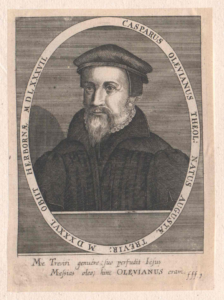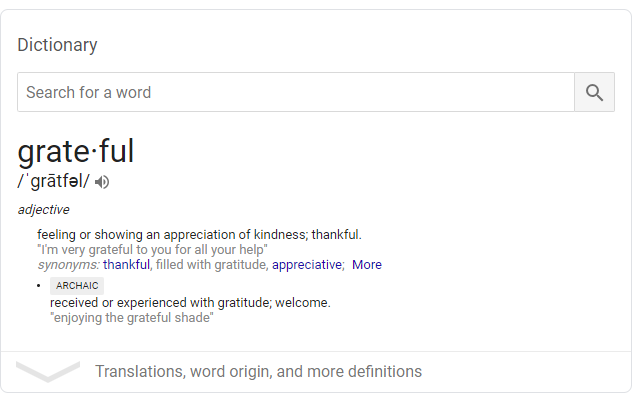
Is final salvation based on a combination of faith and fruit, or is eternal life secured at our justification? The way some people answer is typically based on how they see the Mosaic covenant. If they see the Mosaic covenant as strictly a covenant of grace, then they tend to see the covenant of grace as God’s gracious salvation based on a probationary life where He works to complete the fulfillment of the covenant in the believer’s life. This is what would be called an antecedent view vs a consequential view. That our obedience is antecedent to “final salvation” rather than consequential of already having eternal life where works necessary flow out of the new creation life that Christians are in Christ.
So, whether or not God’s grace is probationary comes down to how someone sees the covenant of works. If you look back at Reformed scholasticism the covenant of works is sometimes referred to as the covenant of life, or covenant of nature. This is because it is the law written on the heart of man that we should love God and neighbor, with the promise of life and the sanction of death in the balance for either obeying or disobeying.
Sometimes people get confused about calling the Mosaic covenant a covenant of works. Reformed people agree that covenant was made with Adam, and that it was a probation that He failed. So, as a result of mankind having Adam’s sin imputed to him, is no longer capable of a probation, but because of sin is under a state of condemnation and unable to fulfill the covenant of works. Therefore, when some people come to the “do this and you will live” seen in the story of the rich young ruler (Matt 19:16-26) they fail to understand what it means. How can Jesus promise life when, not only is Adam’s sin imputed, but Jesus also sets the bar of fulfillment to perfection (Mt 5:48)?
One understanding that all sides have of this is that, the perfect fulfillment of the law being impossible for the Israelite to fulfill is a tutor, or schoolmaster that drives the Israelite to seek Messiah. It was to drive them to Christ who, as the second Adam, perfectly fulfills the law and imputes the consequences of His obedience to all who believe. This is what Paul is getting at in Romans when he contrasts the righteousness by works (to condemnation) and the righteousness which comes by faith (to salvation).
Because Christ, never having sinned, and by being born out of ordinary generation did not have Adam’s sin imputed to Him. Therefore, He was able to fulfill all the conditions of the Mosaic covenant, which is to say He fulfilled the whole law. Christ fulfilled the law written on the heart of mankind. So, what do we say Christ fulfilled? The covenant of life, the covenant of nature? Or do we call it the covenant of works?
If we say that Christ fulfilled any sort of conditional works principle in the Mosaic covenant, then how is it that we call the Mosaic covenant strictly a covenant of grace? It certainly wasn’t a covenant of grace to Christ. It was also not gracious at the national level, because Canaan, being a type of garden of Eden where man was to dwell at peace with God, required Israel’s obedience or the land would spit them out (Lev 18:28).
So, what should we call the Mosaic covenant? Some people like John Piper (who collapse the Abrahamic and Mosaic covenants) say that it was a gracious covenant to the Israelite, but it was also conditional. In other words, God provided everything, but in order to receive “final salvation”, they had to bear enough fruit of obedience, with God’s help of course. (Piper, Future Grace p248, 1995 ed.) That doesn’t sound like good news to me. That sounds like Rome’s position where we cooperate with grace for a final verdict. Piper extends this view to the new covenant as well (p249).
Calling all covenants gracious, and adding probationary element to them is often called monocovenantalism, and it’s at the heart of the Federal Vision error. If we don’t have some sort of view of Christ fulfilling the conditions of the covenant that’s a problem. If we don’t see Christ fulfilling the works of perfectly loving God and neighbor and thereby securing eternal life, then we’re going to at least functionally couch the Christian life as a sort of probation to attain life. Our works will be seen as antecedent to the concept of a “final salvation” rather than consequential to a salvation already secured by Christ’s obedience and sacrifice.
Either Christ has secured eternal life for us, and His resurrection is our resurrection, or we await a performance conditioned resurrection to life in the future. That is, either our resurrection is a vindication that we are in Christ, or our resurrection includes a set of scales where God weighs our good works and sees if there are enough there to match up with the justification which He had initially given to us.
That last view is really a collapsing of justification and sanctification, because it is a collapsing of the covenants. So, if you have a problem stating the Mosaic covenant was a republication of the covenant of works, then you’d better call it something else that has room for a probationary works principle fulfilled and not just gloss over it.
We who are Reformed have to have a works principle that merits life completely fulfilled by Christ looming large in our systematic theologies, or else we’ll either doctrinally or functionally collapse the covenants, and start to mix law and gospel, and see grace as probationary.
The right answer here is that there is no probation. Adam had a probation and he failed. Christ as the second Adam fulfilled that probation and merited eternal life. He secured it, and we who are united to Christ HAVE eternal life (1Jn 5:13) , and the gifts and the calling of God are irrevocable. (Ro 11:29) . For those united with Christ, our salvation is made final by Christ’s resurrection.
The Christian life is NOT a probation. As J. Gresham Machen said shortly before his death: “He [Christ] has not merely paid the penalty of Adam’s first sin, and the penalty of the sins which we individually have committed, but also He has positively merited for us eternal life. He was, in other words, our representative both in penalty paying and in probation keeping. He paid the penalty of sin for us, and He stood the probation for us…. the probation is over.” (Machen radio broadcast December 1936, The Active Obedience of Christ)
Because the probation has been fulfilled for us, we have nothing more of our relative obedience to fulfill it with. We can not merit or demerit anything from the perfect obedience of Christ on our behalf. We only have the motive of gratitude left to us with the moral law as a rule, not to attain life, but as a guide to the Christian life, a guide of what pleases God.
So, yes God sanctifies us in this life, we are resurrected and glorified, but those are never probationary. Christian growth in sanctification is a consequence of the new creation life we have in Christ. It is not antecedent for attaining it as a “final salvation”. Good works necessarily occur in the life of a justified Christian, and we could even say in that context that they are antecedent to glorification. But Christ resurrection is God’s pronouncement of the verdict of “righteous” on Him, and on the elect who are united to Him through faith. The new creation life IS eternal life breaking out in us right now. That is why good works are considered evidence. It’s evidence that we are in Christ, never evidence that we have done enough to stay in Christ.
If you are in Christ, you are a new creation, that is, you are definitively sanctified, and are seated with Christ in heaven. The fruit of good works is a necessary consequence of that new creation life (i.e. It exists), not a bar to meet to attain it, or a co-instrument along with faith that God will weigh at the final judgement. For the Christian, the final judgement is vindication that you are in Christ, the revealing of sons. The already pronounced verdict for Christians who are in Christ is not only not-guilty, but righteous first-born sons of God who have eternal life and an eternal inheritance. Christian, that is good news for sinners like me and you.


 based on performance, and internally it would crush them to admit that they’re a failure. The internal lawyer that accuses them is so strong that to give in and admit that the lawyer is right is a horror that they simply cannot face. If these people are Christians, they have not been taught, or they refuse to give up what they “bring to the table” and simply rest in Christ’s righteousness for them. Theirs is a type of treadmill Christianity where Christ forgives them, but they’re looking to sanctification to be a place to silence the lawyer. Often comparing themselves with others becomes the standard.
based on performance, and internally it would crush them to admit that they’re a failure. The internal lawyer that accuses them is so strong that to give in and admit that the lawyer is right is a horror that they simply cannot face. If these people are Christians, they have not been taught, or they refuse to give up what they “bring to the table” and simply rest in Christ’s righteousness for them. Theirs is a type of treadmill Christianity where Christ forgives them, but they’re looking to sanctification to be a place to silence the lawyer. Often comparing themselves with others becomes the standard. It is through the explaining of doctrine, (that is the normal means of the preaching of the word of God) particularly this gospel articulated, that God uses so by His Spirit grant us faith so that we trust in Christ. So, this same gospel that justifies us is to continue to be examined and explained each week in all its’ glorious detail so that we are built up in Christ, and our faith is strengthened and grows. That is why Historic Reformed piety is church centered, and particularly the “means of grace” centered, which is word and sacrament. Word (law and gospel, and particularly gospel) and sacrament, and then as we in the covenant community of faith have children, we baptize them and we moms and dads catechize them (teach them the faith) as they are covenant members of the Christ confessing community of believers.
It is through the explaining of doctrine, (that is the normal means of the preaching of the word of God) particularly this gospel articulated, that God uses so by His Spirit grant us faith so that we trust in Christ. So, this same gospel that justifies us is to continue to be examined and explained each week in all its’ glorious detail so that we are built up in Christ, and our faith is strengthened and grows. That is why Historic Reformed piety is church centered, and particularly the “means of grace” centered, which is word and sacrament. Word (law and gospel, and particularly gospel) and sacrament, and then as we in the covenant community of faith have children, we baptize them and we moms and dads catechize them (teach them the faith) as they are covenant members of the Christ confessing community of believers.
 is no such thing as a covenant of works, or a works righteousness principle. And just because there is a covenant of works doesn’t mean that anyone other than Adam or Christ could have kept it. And just because only Christ could and did keep it doesn’t mean that it’s still not in place today, and that the natural inclination of the human heart (both unregenerate and regenerate) is towards works based righteousness. We’ve all got the moral law at work in us, and we’re all inclined to try and be something, or be righteous, or be approved by someone or by some standard associated with that law at work in our consciences.
is no such thing as a covenant of works, or a works righteousness principle. And just because there is a covenant of works doesn’t mean that anyone other than Adam or Christ could have kept it. And just because only Christ could and did keep it doesn’t mean that it’s still not in place today, and that the natural inclination of the human heart (both unregenerate and regenerate) is towards works based righteousness. We’ve all got the moral law at work in us, and we’re all inclined to try and be something, or be righteous, or be approved by someone or by some standard associated with that law at work in our consciences.



